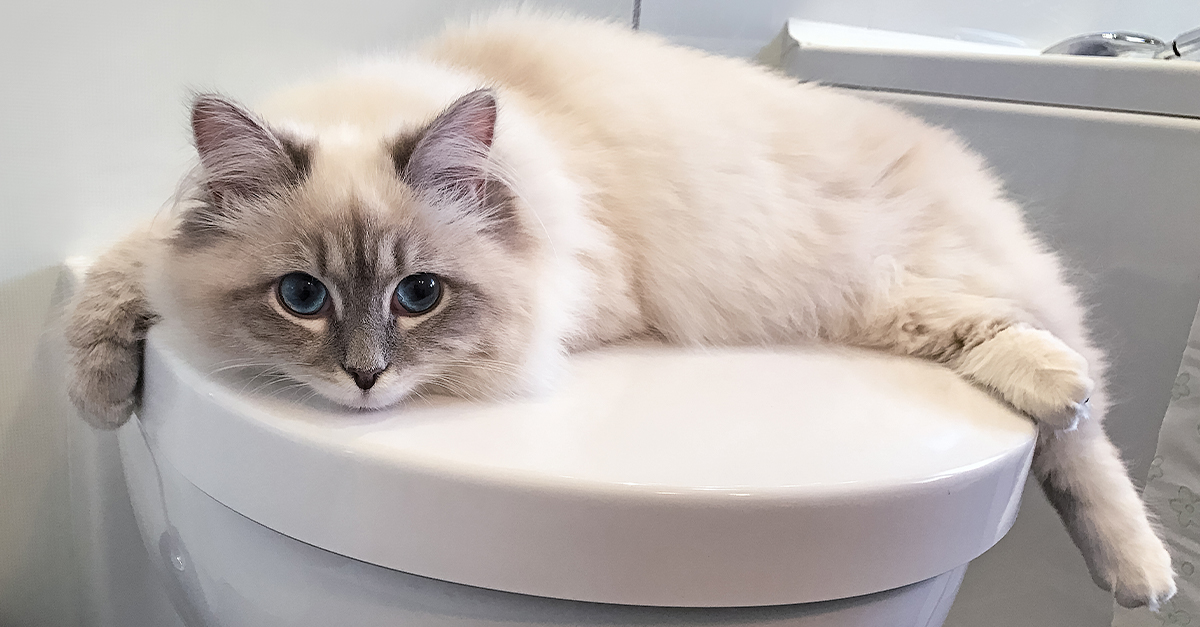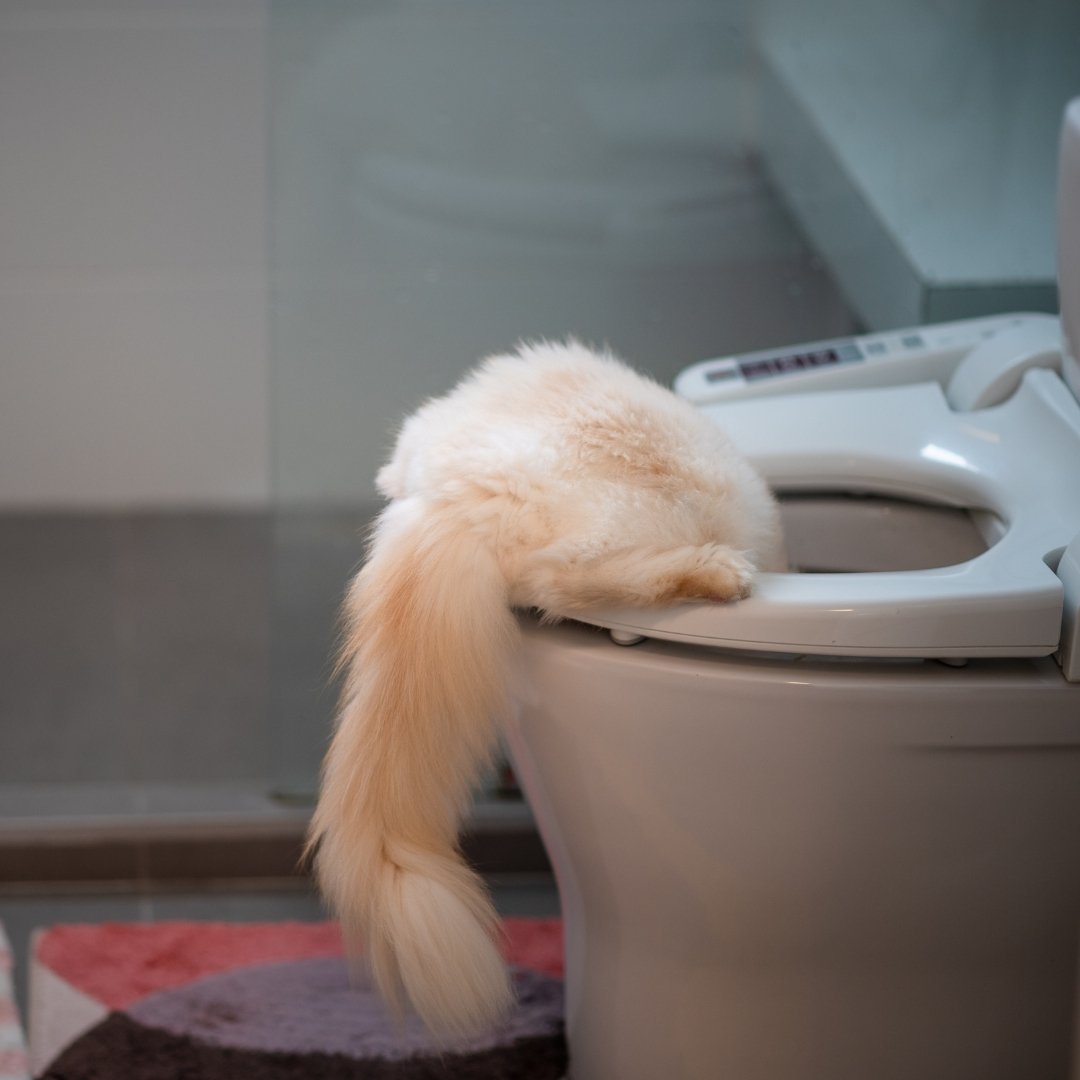The Risks of Disposing Cat Poop in Your Toilet - Precautionary Measures
The Risks of Disposing Cat Poop in Your Toilet - Precautionary Measures
Blog Article
In this article below you might get a good deal of sound information in regards to How to Dispose of Cat Poop and Litter Without Plastic Bags.

Intro
As cat owners, it's essential to bear in mind exactly how we throw away our feline buddies' waste. While it might appear convenient to purge cat poop down the bathroom, this method can have harmful repercussions for both the setting and human wellness.
Alternatives to Flushing
The good news is, there are more secure and more liable means to deal with cat poop. Consider the complying with alternatives:
1. Scoop and Dispose in Trash
The most usual technique of dealing with cat poop is to scoop it right into an eco-friendly bag and throw it in the garbage. Be sure to utilize a dedicated clutter inside story and get rid of the waste without delay.
2. Usage Biodegradable Litter
Go with biodegradable cat litter made from products such as corn or wheat. These clutters are eco-friendly and can be securely dealt with in the trash.
3. Hide in the Yard
If you have a backyard, take into consideration hiding feline waste in an assigned area away from veggie yards and water resources. Make sure to dig deep sufficient to avoid contamination of groundwater.
4. Install a Pet Waste Disposal System
Invest in a pet garbage disposal system especially created for feline waste. These systems use enzymes to break down the waste, decreasing smell and ecological effect.
Health Risks
Along with environmental problems, purging feline waste can also present health and wellness threats to people. Pet cat feces might include Toxoplasma gondii, a bloodsucker that can trigger toxoplasmosis-- a potentially extreme health problem, especially for expectant females and individuals with damaged immune systems.
Ecological Impact
Flushing feline poop presents hazardous microorganisms and bloodsuckers into the water, posturing a considerable threat to marine communities. These contaminants can adversely influence aquatic life and concession water top quality.
Conclusion
Accountable animal ownership prolongs beyond giving food and sanctuary-- it additionally includes proper waste administration. By avoiding purging cat poop down the bathroom and going with alternate disposal methods, we can lessen our environmental footprint and protect human health and wellness.
Why Can’t I Flush Cat Poop?
It Spreads a Parasite
Cats are frequently infected with a parasite called toxoplasma gondii. The parasite causes an infection called toxoplasmosis. It is usually harmless to cats. The parasite only uses cat poop as a host for its eggs. Otherwise, the cat’s immune system usually keeps the infection at low enough levels to maintain its own health. But it does not stop the develop of eggs. These eggs are tiny and surprisingly tough. They may survive for a year before they begin to grow. But that’s the problem.
Our wastewater system is not designed to deal with toxoplasmosis eggs. Instead, most eggs will flush from your toilet into sewers and wastewater management plants. After the sewage is treated for many other harmful things in it, it is typically released into local rivers, lakes, or oceans. Here, the toxoplasmosis eggs can find new hosts, including starfish, crabs, otters, and many other wildlife. For many, this is a significant risk to their health. Toxoplasmosis can also end up infecting water sources that are important for agriculture, which means our deer, pigs, and sheep can get infected too.
Is There Risk to Humans?
There can be a risk to human life from flushing cat poop down the toilet. If you do so, the parasites from your cat’s poop can end up in shellfish, game animals, or livestock. If this meat is then served raw or undercooked, the people who eat it can get sick.
In fact, according to the CDC, 40 million people in the United States are infected with toxoplasma gondii. They get it from exposure to infected seafood, or from some kind of cat poop contamination, like drinking from a stream that is contaminated or touching anything that has come into contact with cat poop. That includes just cleaning a cat litter box.
Most people who get infected with these parasites will not develop any symptoms. However, for pregnant women or for those with compromised immune systems, the parasite can cause severe health problems.
How to Handle Cat Poop
The best way to handle cat poop is actually to clean the box more often. The eggs that the parasite sheds will not become active until one to five days after the cat poops. That means that if you clean daily, you’re much less likely to come into direct contact with infectious eggs.
That said, always dispose of cat poop in the garbage and not down the toilet. Wash your hands before and after you clean the litter box, and bring the bag of poop right outside to your garbage bins.
https://trenchlesssolutionsusa.com/why-cant-i-flush-cat-poop/

I have been very excited about Don’t flush cat feces down the toilet and I hope you enjoyed the post. Kindly take the opportunity to promote this page if you liked it. Thank you so much for your time invested reading it.
Browse Website Report this page